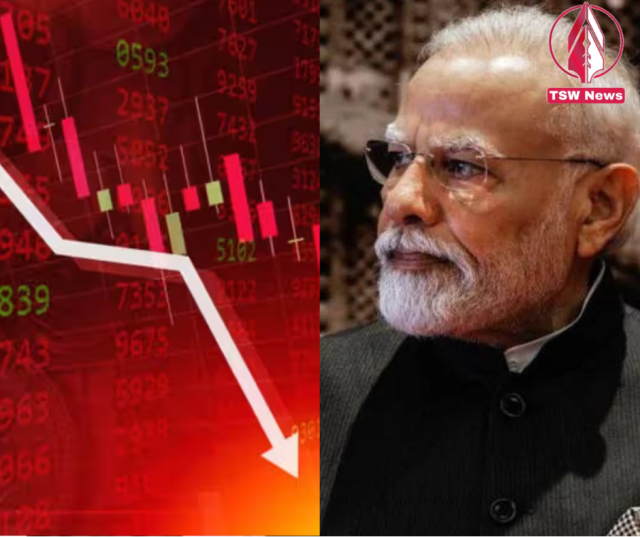India’s shares fell the most in over four years
- Posted on June 5, 2024
- News
- By Arijit Dutta
- 134 Views
Indian stocks suffered their biggest plunge in over four years as election results indicated PM Modi's party may need to form a coalition government, raising investor concerns over economic policies.

Indian equities fell to the lowest level since February 2020 on Wednesday as exit polls suggested the ruling Bharatiya Janata Party led by Prime Minister Narendra Modi may fall short of an absolute majority and require an ally to form a government.
The benchmark NSE Nifty 50 index closed 5 percent higher at 15,638. 9% at 21,884. 5 points, the highest index that has been observed since the first wave of Covid-19 in March 2020. The S&P BSE Sensex fell by 5 percent and it was mainly led by the decline in the infrastructure companies. 7% to 72,079. 05.
This sharp decline happened as vote counts showed that Modi’s BJP party would not likely gain a clear majority in the parliament. This has the potential of forcing the BJP into reliance on its partners in the formation of the next government.
Some people have raised concerns about the stability of its policies and reforms if there is to be a formation of a coalition government. There were expectations that the BBJP-led majority government in India would further entrench neo-liberal policies including privatization and deregulation.
“The key question is whether BJP can maintain single party majority,” said Ken Peng, head of investment strategy for Asia at Citi Global Wealth. “If not, then would its coalition be able to impart economic growth and development, particularly infrastructure?
The EUR/INR currency pair also fell by 0. The situation is the worst in the past 16 months and consequently, the currency dropped by 5% against the U. S. dollar.
Modi’s Hindu nationalist BJP emerged as the single largest party in the 2014 and 2019 general elections. The equity was on the rise this week following exit polls that indicated that the BJP is on course to secure another resounding victory.
But the first numbers suggest that the party could be far from achieving an outright majority in the 543-membered lower house of the Indian parliament.
For instance, if the new government is relying on its coalition partners it may ‘tinker with focus’ commented Puneet Sharma, chief executive at Whitespace Alpha.
Also Read: Indian stocks plunge amid Middle East tensions
Some of the major index stocks such as Relcom and the major banks also fell sharply because they were concerned that the formation of a coalition government would weaken the rate at which it progresses.




